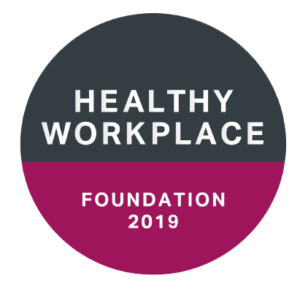Following on from London Sport Consultancy’s successful webinar series on grant funding, over the next few weeks we will be sharing more in-depth learnings through a funding advice blog series.
This week, London Sport Consultancy Funding Expert Aaron Dunkley explains the first element of ‘grant-readiness’ that organisations in the sport and physical activity sector need to consider: Governance & People.
Governance & People
How your organisation operates can give grant-makers reassurance, or doubt, about a grant award being a good, safe investment.
Amongst other things, the extent to which an organisation is well-run is evident in its processes, policies and people.
If a grant-maker has concerns about an organisation’s operations, they might decide it is not worth the risk or reputational damage.
- Are you registered with the relevant authority, e.g. charity commission, companies house?
Being accountable to a national regulator means you are required, or more likely, to maintain certain standards in how you operate. Even a voluntary sports group can register as a CASC (Community Amateur Sports Club) to further evidence their accountability. Unregistered groups can apply to some grant-makers, but these are typically for lower-value grants.
- Is your Board diverse and strong enough? Is there representation from the communities you serve?
An organisation will receive better strategic direction and oversight from a Board with numerous individuals able to bring differing, but relevant, perspectives and experiences to the table. Even more so if the voices of the people you want to impact are present. Different grant-makers have different expectations for the level at which board diversity should meet.
- Does your governing document detail outline adequate governance processes?
Your organisation agrees to be bound by a set of rules, as laid out in your constitution or articles of association. Many grant-makers will outline specific thresholds they expect applicants to meet, such as having a charitable dissolution clause (or ‘asset lock’) or the Board meeting at least four times per year.
- Do you have up-to-date organisational policies around safeguarding, equal opportunities and data protection?
Such policies represent an organisation’s commitment to be effective and transparent in these areas. They underpin key principles of socially minded work: keeping vulnerable people safe and ensuring people aren’t excluded. It is important policies for the organisation are embedded so they are understood by everyone from Board members to volunteers.
- Do you have the skills and experience to deliver the work for which you are requesting funding?
If your workforce – staff or volunteers – are not suitably qualified or have never delivered similar work with similar target groups, the chances of funded work having the desired impact are much smaller. Undertaking pilot projects before applying for grants can help to build relevant skills and experience and can help to demonstrate this grant-makers.
In the next blog in the grant-readiness series, Aaron will explore finance and income generation, and explain what is needed to demonstrate you can manage finances at the required level.
If you would like to find out more about London Sport Consultancy funding support, including support around topics covered in this series, please get in touch with our funding expert at [email protected].





